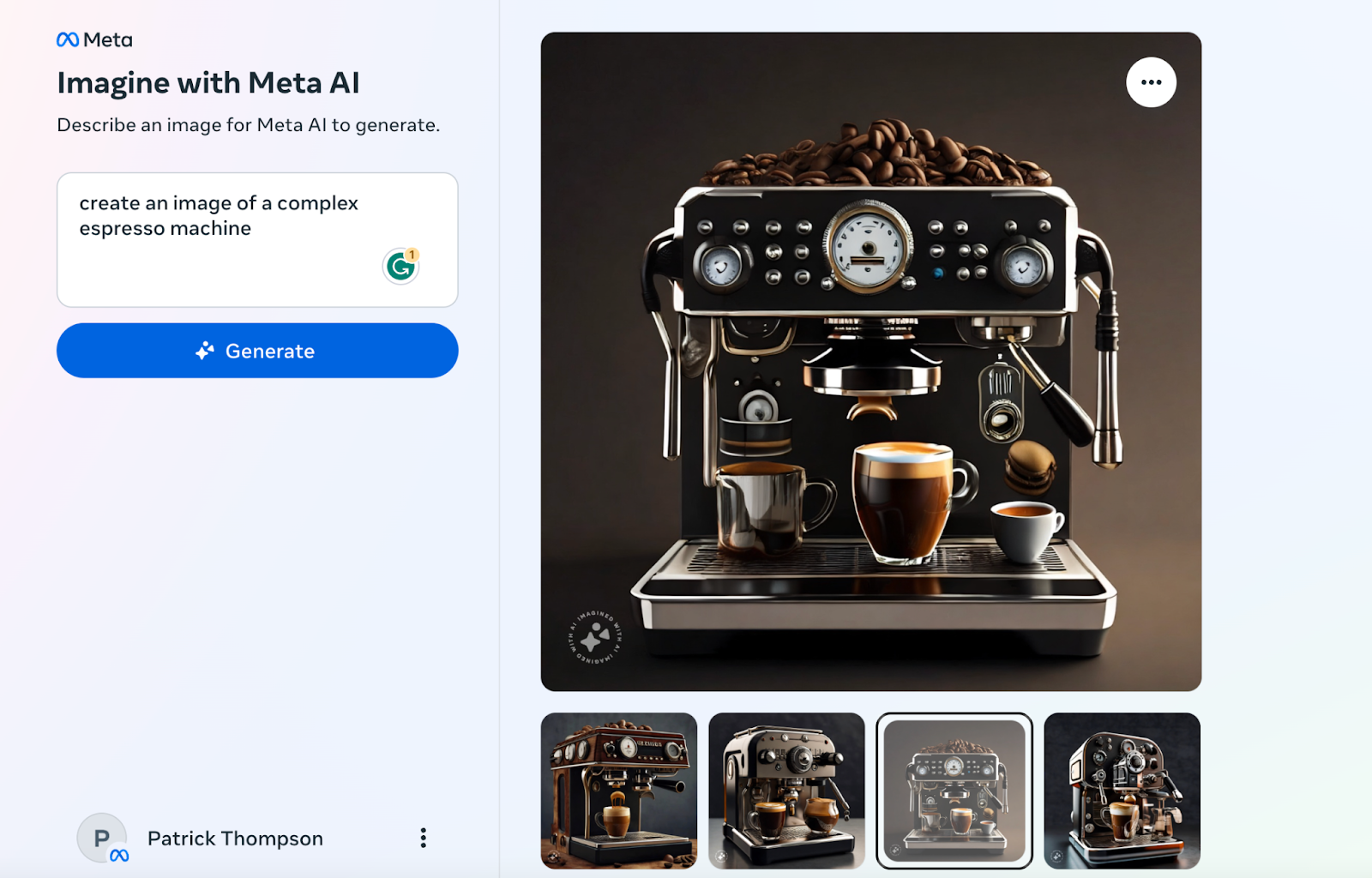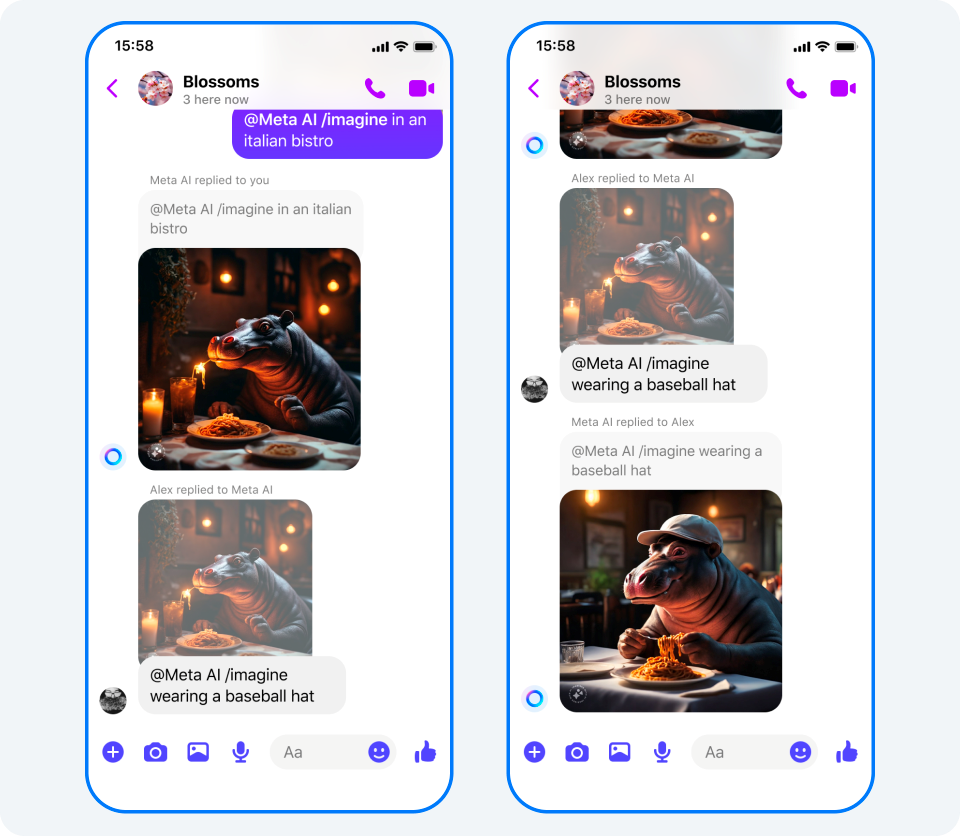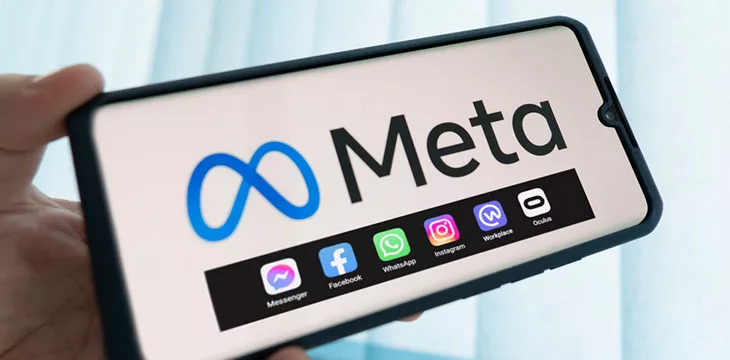|
Getting your Trinity Audio player ready...
|
Meta (NASDAQ: META), formerly known as Facebook, announced on December 6 several new artificial intelligence (AI) features and experiences that it has created and integrated into the apps and services owned by the company.
One feature, in particular, a standalone AI image generator called “Imagine with Meta AI,” seems to be outshining the rest.
Imagine with Meta AI was trained using a dataset of 1.1 billion publicly visible Facebook and Instagram images. The feature previously existed exclusively in Meta chat apps, but its popularity caused Meta to expand access to Imagine with Meta outside of chat and make it available through a standalone website imagine.meta.com.

The app generates images based on written prompts. After a user enters a prompt, the AI produces four images (1280×1280 pixels) in JPEG format. All images currently have a small “Imagined with AI” watermark logo in the bottom left-hand corner of the photo to address concerns about the authenticity of AI-generated content. In the coming weeks, Meta plans to add an invisible watermark to increase the transparency and traceability of AI-generated images further.
Meta’s AI offerings
Imagine with Meta AI is shaping up to be the flagship product in Meta’s suite of AI products and services, but the company announced many other updates across its AI offerings as well.
The large language model (LLM) underpinning Meta AI is now integrated into several product experiences, influencing search results, offering AI-generated suggestions, and enhancing product copy in shops on both Facebook and Instagram.
Additionally, Meta is actively testing the integration of Meta AI in various scenarios, such as helping users explore new places when traveling, assisting in group chats, enhancing the shopping experience on Facebook Marketplace, and offering suggested replies in direct messages for influencers on Instagram.
Meta is also revisiting the origin of its “Imagine with Meta AI” product and chats between users. The company is introducing a feature called “reimagine” in its chats on Messenger and Instagram, letting users generate and share initial images and then allowing the recipient of the image to contribute to the photo by replying with text prompts, resulting in the generation of entirely new image.

And lastly, Meta is improving its other AIs that are accessible through chat on Instagram, Messenger, or WhatsApp, by adding a search function that allows the AI to serve responses powered by Bing. In addition, Meta plans to add long-term memory to a select few of its AIs so that the AI can learn and remember the conversations users have with it, meaning that the user can leave and return with the AI picking up where it left off in conversation.
Meta AI and the Generative AI Landscape.
Meta’s new AI offerings, in particular, Imagine with Meta AI, could make Meta a serious competitor in the generative AI space that is currently dominated by popular service providers OpenAI, Google (NASDAQ: GOOGL), and Midjourney.
“It’s been an incredible year for AI at Meta. We introduced you to new AI experiences across our apps and devices, opened access to our Llama family of large language models, and published research breakthroughs like Emu Video and Emu Edit that will unlock new capabilities in our products next year,” said Meta in its announcement. “We can’t wait for what’s to come next year with AI advancements in content generation, voice, and multimodality that will enable us to deliver new creative and immersive applications.”
In order for artificial intelligence (AI) to work right within the law and thrive in the face of growing challenges, it needs to integrate an enterprise blockchain system that ensures data input quality and ownership—allowing it to keep data safe while also guaranteeing the immutability of data. Check out CoinGeek’s coverage on this emerging tech to learn more why Enterprise blockchain will be the backbone of AI.
Watch: AI truly is not generative, it’s synthetic

 02-22-2026
02-22-2026 




